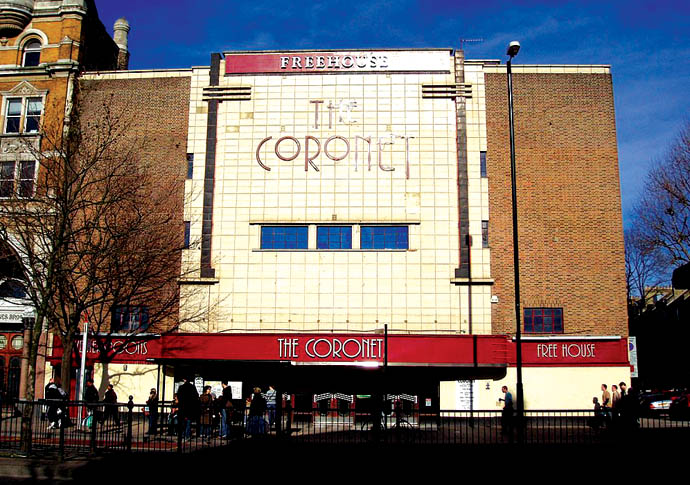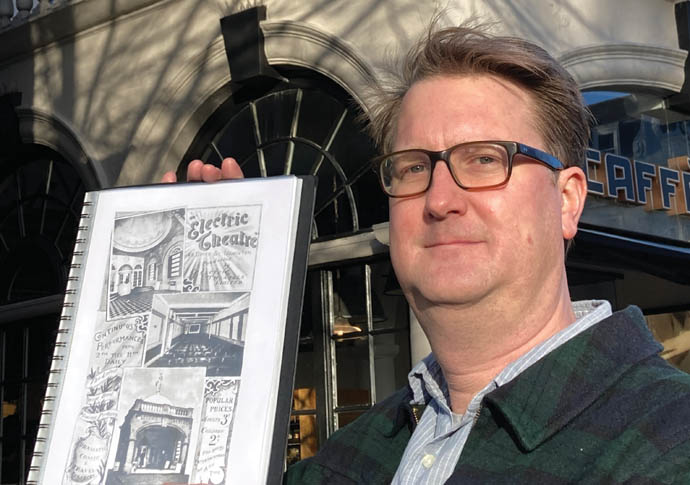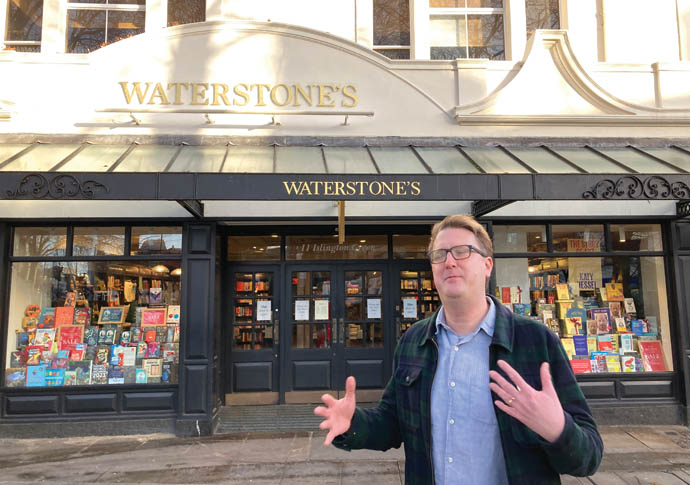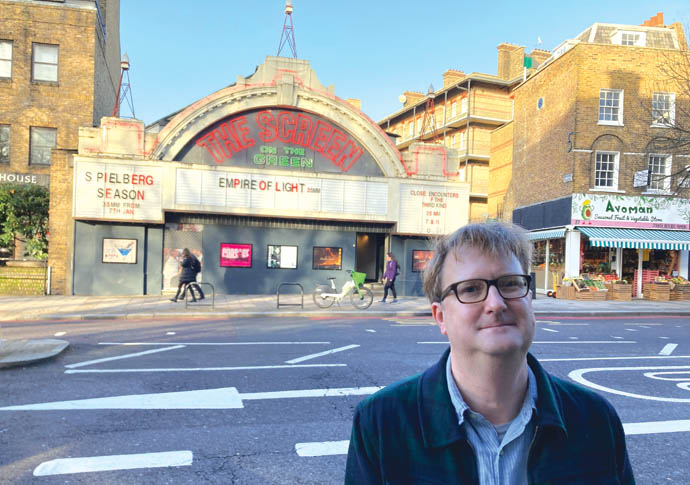A time machine on Holloway Road
As it’s put up for sale by pub chain owner, calls for former picture house to be preserved
Friday, 13th January 2023 — By Charlotte Chambers

The Coronet is up for sale [Ewan Munro]
A FILM buff who has launched a walking tour of Islington’s cinematic history says planners should look to preserve the landmark Coronet pub in Holloway Road.
The bar – a former picture house which first started screening movies in 1940 – was put up for sale by the Wetherspoons chain last month.
Nigel Smith, who guides cinema and local history enthusiasts around the borough’s lost sites, said: “You can still go inside and get the sense of what it once was. I think seeing buildings like that, built in the 1930s, on busy high streets like Holloway Road are also a sort of time machine that can transport you back to the past a little bit.”
He added: “What’s good about the pub, or good about the building, is it’s still recognisably a cinema.

Nigel Smith outside the old Electric Theatre, now Caffè Nero
“I’d be gutted if the Coronet suffered the same fate as the old Odeon in Angel which is now a Starbucks – and you have no idea it was a cinema.“
Anybody trying to alter the look of the Art Deco pub would almost certainly need planning permission from Islington Council, but Mr Smith warned that the worst possible outcome would be to see the Coronet demolished.
It is not a listed building, although the Town Hall has registered it as an Asset of Community Value. The building originally opened as the Savoy cinema, designed by William Glenn, before being renamed the Coronet in 1979. It closed in 1983.
Mr Smith explained the fate of two of Islington theatres designed by Frank Matcham, the architect behind the London Coliseum and the Palladium.

Mr Smith at the Collins Music Hall, now Waterstones bookshop
The Marlborough Picture House, just opposite the Coronet, was flattened in 1962, while the Grand Theatre which stood next to Angel tube station was bulldozed in 1981 to make way for a bank.
Mr Smith’s tour covers the once-flourishing cinema industry in the borough and runs twice a month.
In 1946, the apex of British cinema-going, 1.8 billion cinema tickets were sold.
“Just within Angel and Essex Road there were six cinemas,” he said.
“I find it incredible, there are only five working cinemas in the whole of the borough today but back in 1946, just within a short walking distance, there were all these cinemas and they would have been packed out, day in day out.
“In the early part of the 20th century this was the mass entertainment in this country. It was affordable luxury.”

Outside the Empress Electric which is now Screen on the Green, Upper Street
What is striking for Mr Smith is how most of Islington’s cinematic history is not visible.
Despite visiting Waterstones bookshop by Islington Green for years, Mr Smith had never noticed the blue plaque above the entrance until someone pointed it out to him.
This had been the Collins Music Hall, which once saw a youthful Charlie Chaplin walk its boards.
Similarly, few may know the history of the domed roof and the statue of a woman holding a now-missing lamp standing above the branch of Caffè Nero in Upper Street: the short-lived Electric Theatre closed down just seven years after opening in 1909, dwarfed by the success
of its neighbour The Empress Electric, which now The Screen On The Green.
Mr Smith described the connection to the past through the history of these buildings as something “emotional” for him, and welcomed hearing about the experiences of some of his tour participants.
“It’s been interesting – it’s been all ages,” he added.
“For some who knew the area and remember when things were still a cinema, it’s a nostalgia trip for them, and it’s great for me meeting people who have memories of the area.”
His next tour will take place on January 29. Visit www.nigelsmithwalks.com for more information.